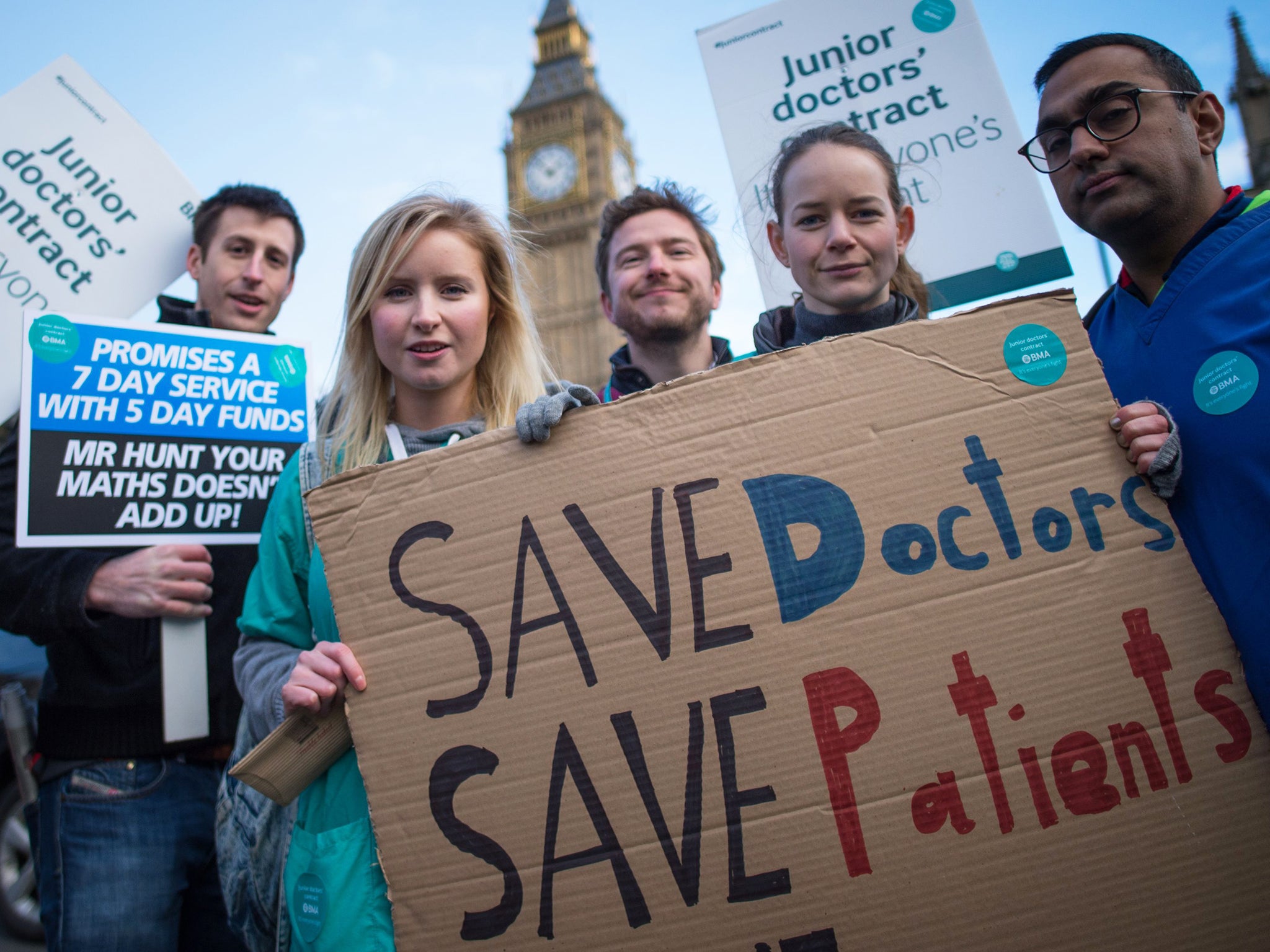I read a sexist Sunday Times article about women doctors after my weekend ICU shift. It mentioned me by name
I’m sure Mr Lawson will be thrilled to know upon hearing this news I shared it with the rest of my team - two female Registrars and a female Consultant - all working at the weekend, despite their uteruses

Your support helps us to tell the story
From reproductive rights to climate change to Big Tech, The Independent is on the ground when the story is developing. Whether it's investigating the financials of Elon Musk's pro-Trump PAC or producing our latest documentary, 'The A Word', which shines a light on the American women fighting for reproductive rights, we know how important it is to parse out the facts from the messaging.
At such a critical moment in US history, we need reporters on the ground. Your donation allows us to keep sending journalists to speak to both sides of the story.
The Independent is trusted by Americans across the entire political spectrum. And unlike many other quality news outlets, we choose not to lock Americans out of our reporting and analysis with paywalls. We believe quality journalism should be available to everyone, paid for by those who can afford it.
Your support makes all the difference.Working in a busy Intensive Care Unit in one most deprived areas of the country can be fairly unpredictable; you are taught to prepare for the unexpected. You expect patients deteriorating, doing your best to prevent them from becoming more unwell. You expect to be working with colleagues saving patients’ lives (even on a weekend). But you don’t expect to be included in a sexist article in a national publication.
I was approached by a female Anaesthetic Registrar this weekend who enthusiastically told me that I had been personally mentioned in The Sunday Times. I’m sure Mr Lawson will be thrilled to know upon hearing this news I shared it with the rest of my team - two female Registrars and a female Consultant. All working at the weekend, despite having uteruses and children.
It is depressing to see a publication about the “problem” of female doctors rearing its ugly head once again. Furthermore, it is disappointing to see this being made in discussion with the currently negotiated Junior Doctor contract and subsequent strike.
The issues with the Junior Doctor Contract are not all gender-based; some issues may disproportionately disadvantage women, but ultimately it is bad for doctors, patients and most importantly, the public. This is why we are fighting; we are fearful for our patients’ safety and the future of the NHS.
It cannot be denied that there is an increase in the number of female doctors, but is this necessarily a bad thing? It may be a surprise to some in the right-wing press that we live in a dynamic society where we have been fortunate to see ongoing developments in the emancipation of women. Ultimately, a doctor is a doctor: your X and Y chromosomes don’t make a difference to your clinical acumen or ability to treat patients.
I cannot deny that due to biology, women do have to take time out for maternity leave - but I know many men who also struggle to manage working in medicine and being a parent. The difficulties of working life are not gender-based; gruelling hours, in addition to emotional burn-outs, affect everyone.
Mr Lawson seems to imply that the demands of childcare disproportionately affect women – and he doesn’t appear to have enough imagination to muster a society where women aren’t expected to be the primary caregivers, and men are respected as fathers and given proper paternity leave themselves. The simple fact is that we are not living in the 1950s any longer. Childcare is an issue for every employee who has a child, male or female – and caring for elderly relatives will affect more people besides.
The new contract will only go on to exacerbate the problems of retention of trainees that Mr Lawson alluded to in his article. There is a reason why the majority of The Royal Colleges have spoken out against the contract; the conditions proposed are unreasonable. It will force people to reconsider if training in a specialty they love is worth it for the sacrifice of working every weekend (yes Jeremy, most people class Saturday at 9:59pm part of the weekend, not a ‘social working hour’).
Again, this is not a gender problem. If the proposed contract were to go through, specialties like Paediatrics and A&E would lose male trainees as well as women. To assume otherwise is absurd.
Additionally, part-time trainees aren’t the hindrance that they’re frequently painted as in the media. With appropriate planning, rotas can be adequately filled. Yes, a trainee might have a year of maternity leave - but they invariably come back to work. Furthermore, the majority of us expect to work until we are at least 67, quashing the frankly unpleasant argument about the cost of training an undergraduate doctor.
The proposed contract is undoubtedly unsafe and dangerous. The loss of financial penalties for trusts for overworking their doctors will only lead to exhausted physicians. The change of social working hours will only go on to cause disruption to acute specialties who are already desperate for more trainees.
The contract will not just affect female doctors; it will affect male doctors, NHS staff – and also you. It will harm the public, and it will harm the NHS. It’s everybody’s battle – and that’s quite simply why we must continue to fight against these changes.
Join our commenting forum
Join thought-provoking conversations, follow other Independent readers and see their replies
Comments